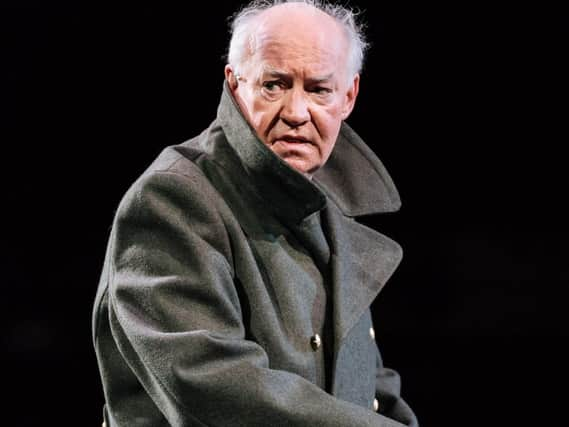Beware the Ides of March, but enjoy this screening


On that occasion the Portsmouth-born actor played the minor role of Pindarus in the Southern Grammar School production.
This time around he is playing the title role, flanked by the likes of David Morrissey, Ben Whishaw and Michelle Fairley, and directed by Nicholas Hytner.
And poor old Pindarus doesn't even make the cut.
Advertisement
Hide AdAdvertisement
Hide AdDavid grew up in Southsea, and as a schoolboy, he recalls: ''The school had a very enjoyable drama club, and it was there that I saw a notice when IÂ was a kid, advertising for the National Youth Theatre, for the summer time. I went for this, and that hooked me completely.
'Before that I had no idea of being an actor, quite on the contrary, but I when I discovered it, I never looked back from that.'
At 18 he went to drama school in Bristol: 'After that, the bird had flown and I needed to be in London for the work.'
The play has been running at The Bridge Theatre in London since January, where it has been winning rave reviews. But it is now being broadcast live across the nation on March 22 as part of the National Theatre Live series.
Advertisement
Hide AdAdvertisement
Hide Ad'I'm glad to say it's a major success story,' David tells The Guide, 'so it's always a joy going into work knowing that people are going to enjoy themselves.
'It's rare that you get such an overwhelmingly positive response after every show, every night, it's quite extraordinary.'
Although the play is named Julius Caesar, the Roman leader is assassinated halfway through, and that had always put David off the role.
'I've never really been interested in taking this part, but I've always liked the play. The play is top-loaded '“ after Caesar's death there are just endless battle scenes representing the civil wars, so as a result by the end of it, you've kind of forgotten who Caesar is and why it began.
Advertisement
Hide AdAdvertisement
Hide Ad'When Nick Hytner asked me to do this, I said: "Caesar's got to stay prominent", and he said, "that's the point."
'In this version of the play most of it is intact up to the point where Caesar is assassinated, and you get the orations over the coffin.
'Thereafter it's very much condensed into a very intense civil war scenario leading to disaster '“Â because that's the whole point of the play, be careful what you wish for.'
Many productions focus on the relationship between Brutus (Whishaw) and Antony (Morrissey) and their power struggle after Caesar's death. But Calder was keen to make more of Caesar's character.
Advertisement
Hide AdAdvertisement
Hide Ad'The other thing I said was that I felt, often when you see this play, you think, why do they kill him? You've got to have a Caesar worth killing or there's no drive to the play.
'We've created a guy who's ambiguous, but he is a very powerful man, and the fear is that he'll become too powerful.'
With the play in modern dress, there are also conscious nods to the present day.
'There's a kind of,echoes of Trumpism and things like that, and autocracy. Initially you can make a connection between Caesar and Trump, but I knock that on the head.
Advertisement
Hide AdAdvertisement
Hide Ad'In my book, Trump is a loser, and Caesar was a fantastic, amazing military genius. And people also don't know he was a great writer, he was an intellect as well as a military man.'
The play's unusual staging also brings the audience right into the action.
'The staging is called promenade, but it's more like an arena show, really. It's based on eight rostra, all the same size that can move up and down individually to create different shapes.  And the audience have to move on and off them '“ they have crowd management as it were. The audience have a very exciting time, as they're very much part of the show.
'Every now and then you got someone who doesn't understand why they have to move, and they get a bit belligerent, but then they realise there's an army standing behind them!'
Advertisement
Hide AdAdvertisement
Hide Ad'It's a show that allows the play to be very clear and very well expressed.'
When it come to the live broadcast, the cameras won't prove to be a problem.
'That's less so than in other productions actually. When we did it for Hamlet at The National with Nick Hytner that was a stage production so the audience is there in one place in front of you and therefore you're looking directly at moving cameras, you can't not see them.
'But here, because it's in the round, there are cameras as members of the audience and you're less aware of them.
Advertisement
Hide AdAdvertisement
Hide Ad'We've done a rehearsal with the cameras but it's more for them than us '“ they need to know where to be to cover the full 360 degrees.'
Julius Caesar: National Theatre LiveÂ
 Various cinemas
Thursday, March 22